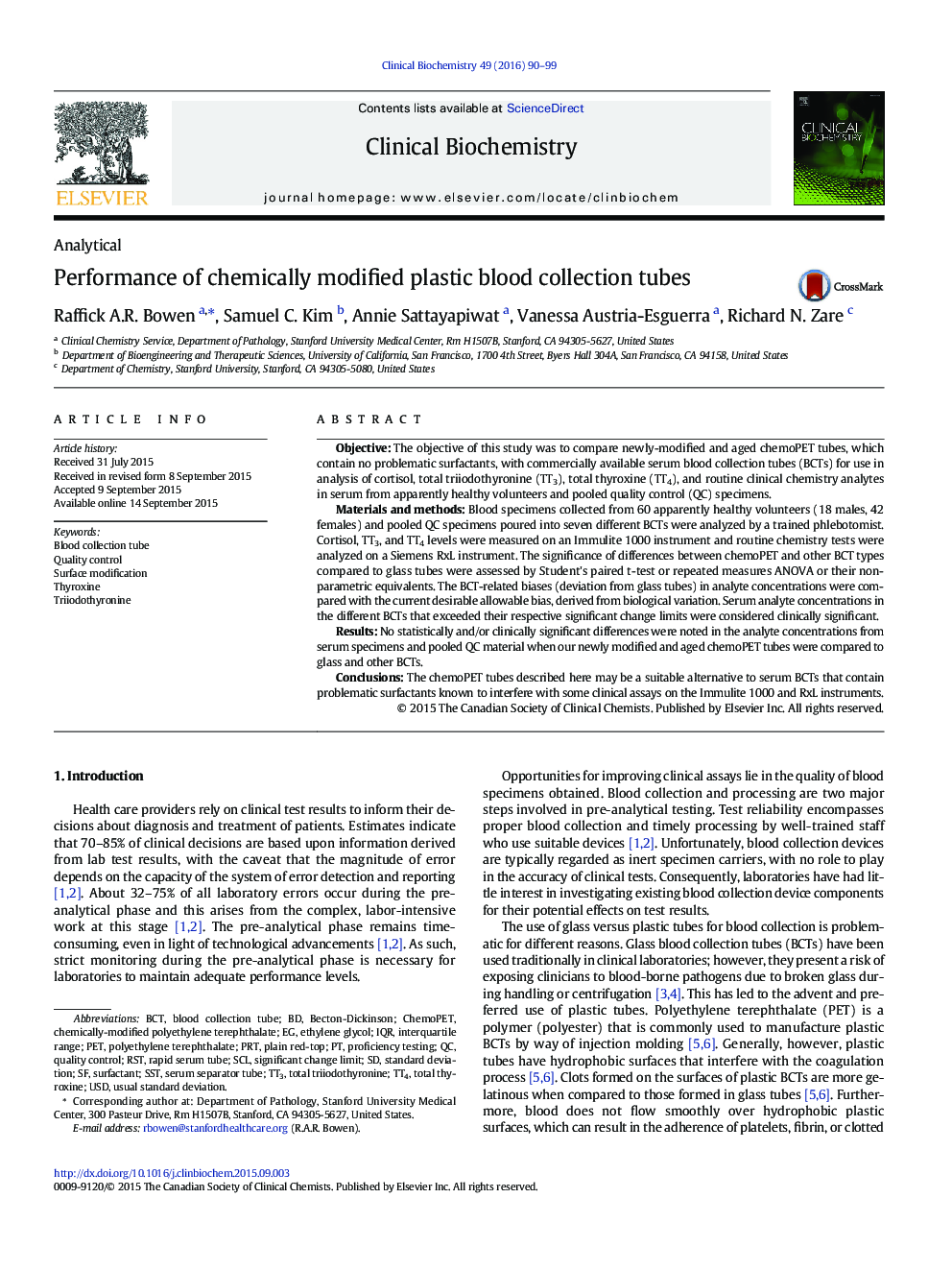| Article ID | Journal | Published Year | Pages | File Type |
|---|---|---|---|---|
| 1968582 | Clinical Biochemistry | 2016 | 10 Pages |
•Chemically-modified blood collection (chemoPET) tubes were developed in this study.•Serum and quality control specimens were collected in chemoPET and other tube types.•Specimens from different tube types were analyzed for clinical chemistry analytes.•Analyte levels showed no significant changes with chemoPET compared to other tubes.•ChemoPET tubes may be a suitable alternative to other commercial plastic tubes.
ObjectiveThe objective of this study was to compare newly-modified and aged chemoPET tubes, which contain no problematic surfactants, with commercially available serum blood collection tubes (BCTs) for use in analysis of cortisol, total triiodothyronine (TT3), total thyroxine (TT4), and routine clinical chemistry analytes in serum from apparently healthy volunteers and pooled quality control (QC) specimens.Materials and methodsBlood specimens collected from 60 apparently healthy volunteers (18 males, 42 females) and pooled QC specimens poured into seven different BCTs were analyzed by a trained phlebotomist. Cortisol, TT3, and TT4 levels were measured on an Immulite 1000 instrument and routine chemistry tests were analyzed on a Siemens RxL instrument. The significance of differences between chemoPET and other BCT types compared to glass tubes were assessed by Student's paired t-test or repeated measures ANOVA or their non-parametric equivalents. The BCT-related biases (deviation from glass tubes) in analyte concentrations were compared with the current desirable allowable bias, derived from biological variation. Serum analyte concentrations in the different BCTs that exceeded their respective significant change limits were considered clinically significant.ResultsNo statistically and/or clinically significant differences were noted in the analyte concentrations from serum specimens and pooled QC material when our newly modified and aged chemoPET tubes were compared to glass and other BCTs.ConclusionsThe chemoPET tubes described here may be a suitable alternative to serum BCTs that contain problematic surfactants known to interfere with some clinical assays on the Immulite 1000 and RxL instruments.
Graphical abstractFigure optionsDownload full-size imageDownload as PowerPoint slide
